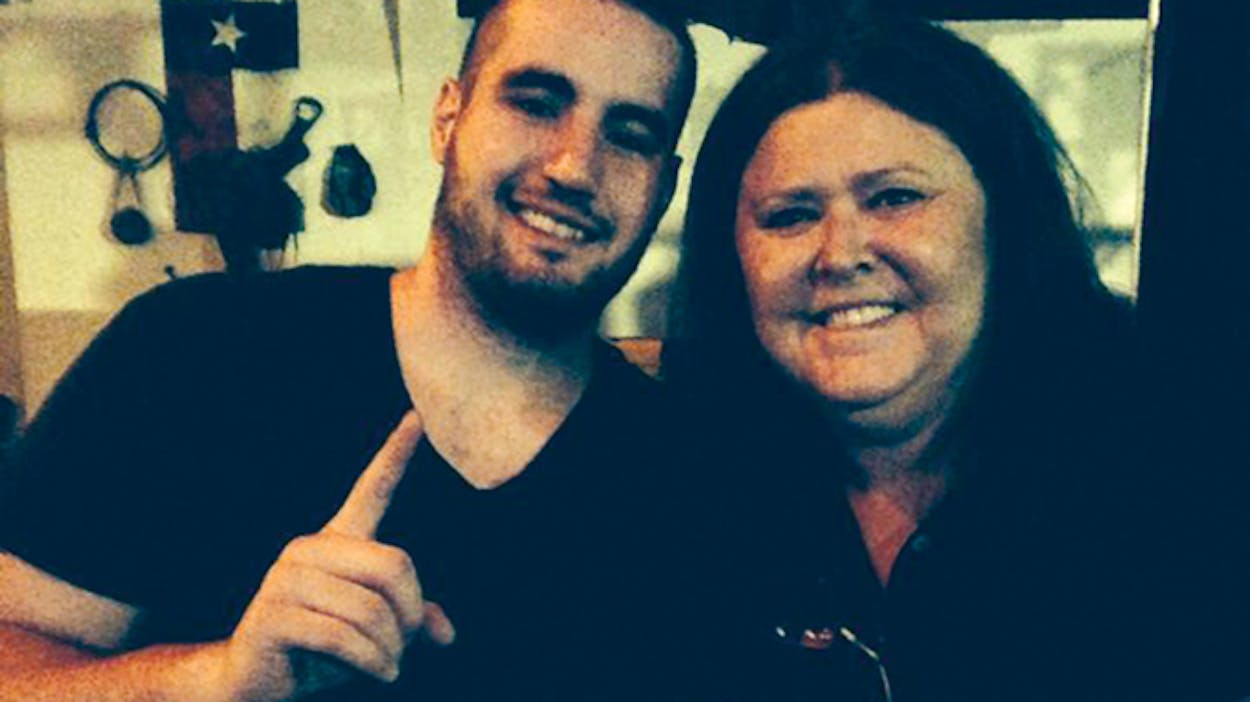Cody Harmon of San Antonio was born without tibia bones, and his legs were amputated when he was 3. At Wagner High School, Harmon spent four years on the wrestling team; to compete, he took off his prosthetic legs and wrestled on his knees.
“I was so close to the ground that no one knew how to defend me,” he said, “and I was so close to your legs that I would grab your legs and pull them to take you down, get a quick two points.”
But in the three years since he graduated, Harmon, 21, a kinesiology student at Northeast Lakeview College, has struggled to find opportunities to compete.
“A lot of stuff is for Wounded Warriors, but I’m not a Wounded Warrior,” he said. “I’m a civilian.”
The Amputee Coalition, a nonprofit support group, estimates that there are 1.9 million amputees in the United States, more than half of them diabetics. But in San Antonio, the most active and visible amputee population are those who lost limbs in Iraq and Afghanistan.
According to the Army Surgeon General’s Office, 1,558 major limb amputations were performed on American soldiers involved in the Iraq and Afghanistan wars from 2002 to the end of 2013. Eighty-three percent suffered lower-limb wounds because of improvised explosive devices. San Antonio’s Wounded Warrior Project gives these amputees the opportunity to play a variety of sports including football, softball and volleyball, but civilians cannot participate.
In September, Harmon’s prosthetist told him about the National Amputee Boxing Association. The organization was founded in 2013 by Shaman R. Owensby, an Air Force veteran and athletic trainer who worked with amputees, and Rachel Quintero, a client of Owensby’s, who has a business background. Owensby asked one client for his dream list of sports. The client “had always wanted to box,” said Rachel Quintero, the association’s executive director. “We came to find out that we had a number of guys who showed up who had wanted to do this for years. One of our boxers, he lost his legs at 22, and he had wanted to box, and everyone kept telling him, no, you can’t do it.”
To provide a showcase for amputee boxers, N.A.B.A. will hold three or four boxing matches a year. The next one is planned for the early part of 2015. The organization also hopes to offer training, whether or not a fighter wishes to compete. The organization has raised $15,000 from private donations and fund-raising parties, with a goal of an operating budget from $40,000 to $50,000 next year.
When Harmon learned of the association, just two weeks before its first event, “I jumped on it,” he said. The week before the match, he went on a strict diet and trained for two hours a day, hitting the heavy bag, shadowboxing and running on his dual prosthetics.
A week later, Harmon, surrounded by corner men, bounded through the crowd at Cowboys Dance Hall in northeast San Antonio and into the ring. Nine Inch Nails’ “The Hand That Feeds,” played over the public address system. A minute later, his opponent, Moses “Iron Man” Sonera, strode in to the Black Sabbath hit from which he took his nickname. According to Quintera, 700 people had gathered to watch.
Sonera lost his left foot to a mortar while serving at Kirkuk Air Base in Iraq in 2004. His father had trained him to box in Puerto Rico when he was young, and he had been training to fight since April.
“I’ve been playing different types of sports,” since his amputation, Sonera said, “but this one, I like it. I love boxing.”
Within a few weeks, he said, he had adjusted to being in the ring on his prosthesis. “At first, every sport is kind of hard, but after a while, everything comes naturally.”
Sonera faced Harmon in three one-minute rounds, both men moving nimbly. Sonera pummeled Harmon in the first round, but in the second round, Harmon maintained his balance and took a few aggressive shots. Neither fighter was knocked down, but training and experience won out, with Sonera taking the fight, 30-27, by the unanimous decision of the three judges.
Other matches at the event were more dramatic. Kelly O’Quinn, a 36-year-old oil field worker from Odessa who trained for two months, knocked down his opponent Kris Biggs, a 31-year-old military veteran who works with a faith-based veterans’ assistance program, several times in their three rounds. O’Quinn won in the third by technical knockout. O’Quinn, a self-described “bullfighter-motorcross rider-bar brawler,” said his training was rough, “like learning everything all over again.” But, he said before he entered the ring, “I just want to hit somebody really, really hard.” At the association’s first event, he got the chance to do it.








